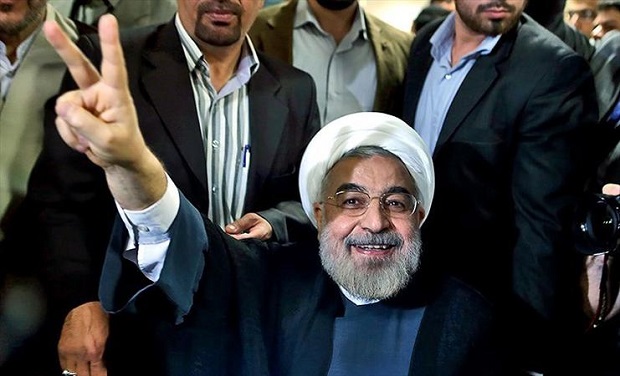The Iranian eleventh presidential election was held on Friday 14th of June after several months of hot political advertisements by the nominated candidates.
After the rigged presidential election of 2009, the Islamic Republic of Iran was faced with difficult situations.
According to the opposition analyses, the opponents of the Islamic Republic were facing policies problems and crises were multiplied over the last 8 years.
The fear of losing power along the fear of being accused of fraud again in the election, it was the time to seek a more precise engineering.
The pressure of the exclusions was accepted initially by the governments, but what is going to happen next, no one can speak with certainty.
The popularity of this election was not the same as that of 2009. The election was boycotted by numerous parties and organizations. Vast numbers of people were indifferent of the right to choose.
The poll was conducted on Friday 14th of June. The Iranian Interior Minister Mostafa Mohammad-Najar told the reporters and announced that, Hassan Rohani is the victor of the presidential elections by achieving 18 million 613 thousand 329 votes.
Mr. Rohani won the election by achieving 50.71% of the votes. It was an overwhelming public message of the opposition to the supreme leader of the Islamic Republic of Iran. The fact that Rafsanjani and Khatami with a range of reformists supported Mr. Rohani indicates that they are supported by the people in their struggle with the conservatives headed by Ali Khamenei.
The presidential election was held in Iran which Kurdish people in the East Kurdistan did not welcome it. The Iranian government attempted very hard to show extensive public participation in this election. Even the presidential and council elections were held concurrently. Despite of that, non-participation was evident in Kurdistan.
The proportion of participation in the East Kurdistan was less than the previous elections.
It was said that despite the fact that the council election was conducted simultaneously, participation was unprecedentedly law in Meriwan city.
In Sine and Seqiz cities, most people attended for the council election in the polling stations. However, the numbers of participation was much lower than previous elections. It was reported that, people were filmed by hidden cameras in Sine.
In Kirmashan city, also there was the strong security presence during the day. Army troops were on patrol in different areas in the city. However, most people are said to have participated in the council’s election.
In Sarpol zahab city, the numbers of participants were small. The plainclothes military personnel in the city demanded people to go to the polls.
In Mako city the military forces wore the civilian clothes and went to the polls to vote as commanded by the authorities. They wanted to be shown as the large turnout in the pictures and in the video for the televisions.
In Bokan city, because people were refusing to participate in the elections, they went to resorts around the town. There were only two cameras to record people. For that reason, the city officials asked their families and relatives to attend in these two places to be demonstrated to record and display images that show a high turnout.
Not welcoming the elections was clearly shown by participation of a minority of people in Nexede, Shino and Mehabad cities. The regime authorities did the wide publicity in those cities several days before the election to force people participate in the election. But the report is based on the information that came from those cities were different results.
In some villages, the minority of people voted. In some other villages, there were not polls.
In Piranshahr the same as other cities in the East of Kurdistan, the presidential election was faced with little interest. The majority of people who turned up voted for the council election.
It was reported that in the cities of Elam, Kangawar and Aywan, in contrast to previous elections, the voter turnout was low. Those cities were under desperate security atmosphere. The election was met with a cold reception by citizens.
In Pawa and Shamshiri, the turnout was so low. Consequently, the Imam of the town complained about it in his Friday’s prayer. In Rewanser more people did not come out of their houses. The municipal Ansar troops took the brigade soldiers into the city to vote.
Two ballot boxes were established in Hewler and Binesilaw town in South Kurdistan. In Hewler the majority of voters were employees of the Islamic Republic governments in this city and there were about 20 votes in the second box.
Rojhelat.info
